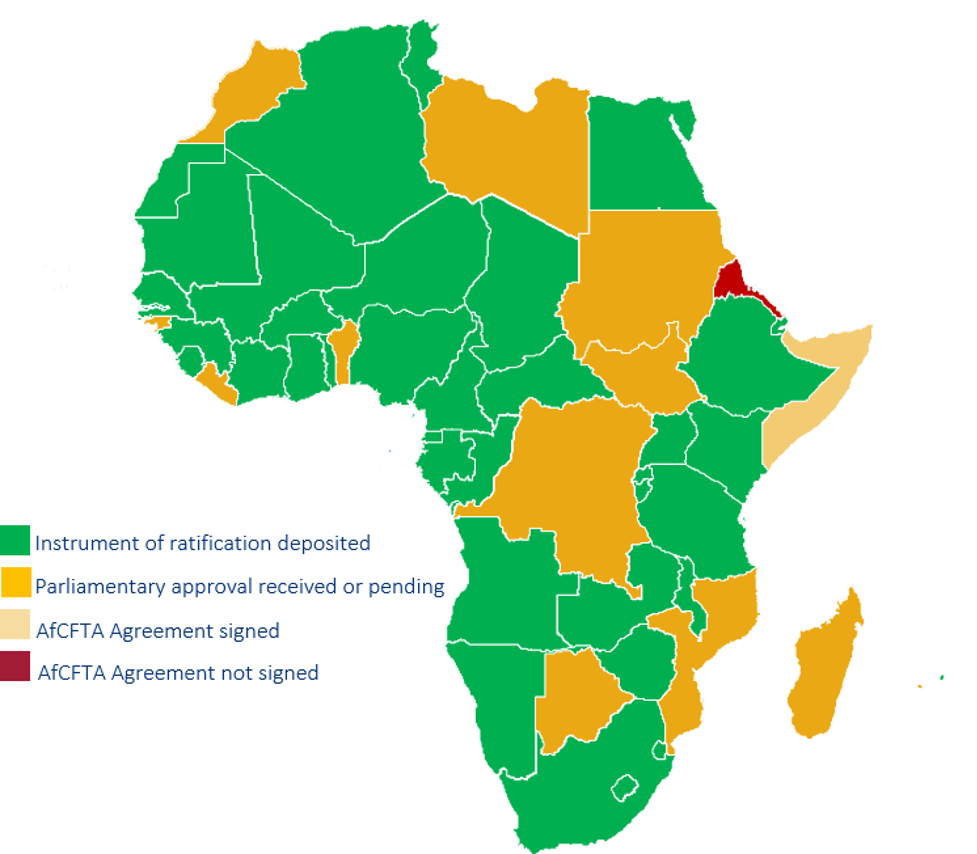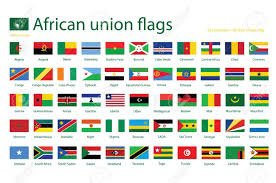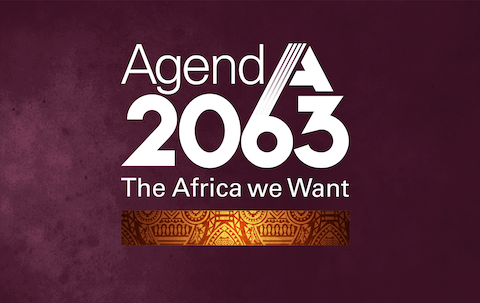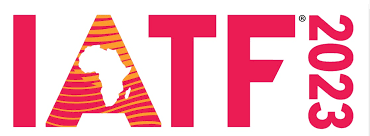AFCFTA: Has Africa sighted Canaan in search of opportunities to unlock economic its potentials?

![]()
After decades of socioeconomic backwardness, African leaders have suddenly realised that the destiny of their continent lies is their hands and have taken a bold initiative to create a niche for the continent. Can they succeed in this project? Do they have what it takes to make their efforts worth the while? Time’ll tell
By Chris Uba

Perhaps, one of the many challenges that African countries must have to deal with, as a matter of urgency, if they want to be relevant in the global economy and overcome poverty, is the problem of low trade among them. Compared to trade with the other parts of the world, the current state of intra-African trade is nothing to write home about and largely explains the reason for the persistent lack of progress in the continent.
As the United Nations Conference on Trade and Development ( UNCTAD) has pointed out in one of its reports, Africa has a big domestic market that possesses significant opportunities but currently, the continent accounts for 2.9% of the world production and 2.6 % of the world trade even though 16.3% of the world population is living on the continent, hence , there are significant economic development gaps both between African and developed countries as well as among African countries. Poverty is still widespread in Africa where 32 out of 48 Least-Developed Countries (LDCs) are located.
However , according to UNCTAD, “intra-African trade has increased in recent years to 15.4 per cent. Nevertheless, Asia and Europe are still the main trade partners of the continent. High dependence on trade in primary goods, high product and market concentration of exports, and weak regional production networks are among the main challenges of African counties.”
The UNCTAD Facts & Figures released in 2019 show that total trade from Africa to the rest of the world averaged US$760 billion in current prices in the period 2015–2017, compared with $481 billion from Oceania, $4,109 billion from Europe, $5,140 billion from America and $6,801 billion from Asia.
The share of exports from Africa to the rest of the world ranged from 80% to 90% in 2000 –2017. The only other region with a higher export dependence on the rest of the world is Oceania.Intra-African exports were 16.6% of total exports in 2017, compared with 68.1% in Europe, 59.4% in Asia, 55.0% in America and 7.0% in Oceania.
According to the UNCTAD, intra-African trade, defined as the average of intra-African exports and imports, was around 15.2% during the period 2015–2017, while comparative figures for America, Asia, Europe and Oceania were, respectively, 47%, 61%, 67% and 7%.
Since 2008, Africa, along with Asia, is the only region with a rising trend in intraregional trade. In 2016, intra-regional economic community trade was highest in SADC ($34.7 billion), followed by CEN–SAD ($18.7 billion), ECOWAS ($11.4 billion), COMESA ($10.7 billion), AMU ($4.2 billion), EAC ($3.1 billion), IGAD ($2.5 billion) and ECCAS ($0.8 billion).
With regard to the share of intra-regional economic community trade in total trade in Africa, in 2016, there were deeper levels of integration in SADC (84.9 per cent), followed by COMESA (59.5 per cent), CEN–SAD (58.4 per cent), ECOWAS (56.7 per cent), AMU (51.8 per cent), IGAD (49.0 per cent), EAC (48.3 per cent) and ECCAS (17.7 per cent).
The 10 leading intra-African exporters in 2015–2017 were Eswatini (70.6%), Namibia (52.9%), Zimbabwe (51.6%), Uganda (51.4%), Togo (51.1%), Senegal (45.6%), Djibouti (41.9%), Lesotho (39.9%), Kenya (39.3%) and Malawi (38.3%).
The 10 countries with the lowest share of intra-African exports were Chad (0.2%), Guinea (1.6%), Eritrea (2.3%), Equatorial Guinea (3.5%), Cabo Verde (3.6%), Angola (3.9%), Libya (4.5%), Guinea Bissau (4.7%), Liberia (5.1%) and Algeria (5.5%).

Before, now, the reason often advanced for the low intra-African trade was lack of complementarity among countries in the continent. The various European colonial powers that had ruled these countries turned them into agricultural estates that produced raw materials for European factories which in turn processed them (raw materials) into finished goods and re-exported them to the continent. No efforts were made to encourage manufacturing because it was against the colonial policy. Hence, after independence these countries could not trade with one another because they produce almost the same commodities–mainly primary products.
The resulting consequences of this include low trade among African countries and glut in the international market for their exports and lack of foreign exchange to execute economic development projects and other domestic needs. As a result ,the continent has been ravaged by excruciating debt burden which has subjected it to poverty and under development.
AFCFTA and Agenda 2063
Gladly, African leaders appear to have woken up from their slumber by jettisoning the blame-games which had been their stock in trade. They have taken the bull by the horn by taking steps to integrate the continent through creating a continent-wide free trade area. Six decades after their independence , they have realised that their progress lies in their hands and must begin to put their acts together in order to extricate themselves from the near perpetual economic slavery. They have realised that the era of flimsy excuses are no longer acceptable and that they must pull resources together to make the continent relevant in the scheme of things in the global society .

As one analyst puts it, “African leaders have decided to think outside the box to come up with an initiative the will bring about phenomenal progress to the continent.”
This initiative – African Continental Free Trade Area (AFCFTA) – which came into effect on January 1, 2021, has created the largest free trade area in the world, covering 54 African countries and a combined population of over 1.2 billion people. This landmark agreement has opened up a plethora of opportunities for intra-African trade and economic collaboration.
AFCFTA is situated within the context of Africa Agenda 2063, also known as “The Africa We Want,” a strategic framework developed by the African Union (AU) to guide the continent’s development over the next five decades, from 2013 to 2063. Manufacturing plays a key role in the realisation of this Agenda. It is seen as a key driver of economic transformation and industrialisation, capable of generating employment, fostering intra-African trade, technological advancement and the reduction of poverty.
The emphasis on manufacturing in both the AfCFTA and Agenda 2063 is not surprising given that the manufacturing sector accounts for about 70% of global trade and about 30%-55% of service jobs are related to the manufacturing sector. It presents a unique chance for Africa countries to bolster their manufacturing sectors and position the continent for global competition.
In the modern global economy, industrial development is not luck, it is a nation’s choice. With the continued globalization of the world’s economy, the convergence of consumer tastes, and the worldwide dispersal of industrial technology, the manufacturing sector has never been as competitive as it is today. Companies are no longer concerned about firms within their geographic jurisdiction but with every competitor all over the world.
Low international freight costs, technology and unprecedented levels of information available over the internet have truly transformed the world into a single accessible market. In today’s world, the fierce global competition has reduced the likelihood of the spontaneous development of new industry. Countries must therefore have an intentional, precise, and intense approach to nurturing and expanding industrial activities. This is even more paramount for a country like.
The “AfCFTA is a flagship project of Agenda 2063 aimed at creating a single African market for goods and services facilitated by free movement persons, capital, investment to deepen economic integration, promote and attain sustainable and inclusive socio-economic development, gender equality, industrialization, agricultural development, food security, and structural transformation,” said AU. Therefore, all hands must be on deck in order to make it work and its objectives achieved.
Intra-African Trade Fair
To accelerate the implementation of AFCFTA, Intra-African Trade Fair (IATF) initiative was launched to support the implementation of the AfCFTA. Organised by African Export-Import Bank (Afreximbank) in collaboration with the African Union and AfCFTA Secretariat, marking an important step to sustainably address the gap in trade and market information for the successful realisation of the AfCFTA objectives.

Kanayo Awani, Afreximbank Executive Vice President, in charge of the Intra-African Trade Fair, said that a lack of access to trade and market information is one of the key reasons for the low level of intra-African trade. She noted that Intra-African trade is a critical factor for unlocking Africa’s economic potential. Although the share of intra-African trade as a percentage of total African trade has increased from 10% in 1995 to around 16% currently, it remains low compared to the levels in Europe (59%), Asia (51%), and North America (37%). One of the key reasons for the low level of intra-African trade is the lack of access to cross-border trade and market information.
Committed to transforming Africa, Afreximbank launched the biennial intra-African Trade Fair in 2018 as a unique platform to connect African buyers, sellers, and investors. Alongside IATF, Afreximbank also offers a comprehensive suite of products and facilities to support intra- and extra-African trade.
Olusegun Obasanjo, a former President of Nigeria who is IATF Advisory Council says “there will be challenges, but while standing at a crossroads we have identified the right road in order to grow African economies, actualize potential and fulfil our destiny. We must work together so that we can swim together in progress, prosperity and security.”
At the Third Edition of the 7-day showpiece which held in Cairo, Egypt, in November 2023, President Abdel Fattah al-Sisi of Egypt called on countries across the continent to consolidate their efforts to promote intra-African trade.
Sisi said that Africa’s huge natural resources and its agricultural, educational and mineral potential should be leveraged to drive intra-African trade, adding that there was need for African nations to cooperate positively towards mutual growth.
“As you can see, the capabilities exist and the possibilities exist, but there may be some obstacles and problems that hinder this work,” he said. “Therefore, we in Egypt should always build, develop, rebuild and cooperate in these fields, and nothing less.”
The IATF is Africa’s largest trade and investment event, attracting thousands of exhibitors, visitors and buyers and generating trade and investment deals running into tens of billions of dollars.
Rule of Origin
One of the problem spots of the AFCFTA project is the Rule of Origin, which the World Trade Organization (WTO) defines as “the criteria needed to determine the national source of a product. Their importance is derived from the fact that duties and restrictions in several cases depend upon the source of imports.”
According to WTO , Rules of Origin are used: to implement measures and instruments of commercial policy such as anti-dumping duties and safeguard measures; to determine whether imported products shall receive most-favoured-nation (MFN) treatment or preferential treatment; for the purpose of trade statistics; for the application of labelling and marking requirements; and for government procurement.
As UNCTAD advised in its Economic Development in Africa Report 2019 notes that rules of origin – the criteria needed to determine the nationality of a product – could make or break the AfCFTA. According to the report, the rules could be a game changer for the continent if they are simple, flexible, transparent, business friendly and predictable. The Nigeria’s organized private sector is of the strong view that the Rule of Origin must be adhered to ensure that commodities being traded on in the continent has African origin.
Nigeria’s former Minister of Industry, Trade and Investment, Olusegun Aganga,who was a guest lecturer at the meeting Manufacturers Association of Nigeria (MAN) in October urged African leaders to be intentional on the objectives of the AFCTA.
Speaking on theme, “Setting the Agenda for Competitive Manufacturing Under the AfCFTA: What Nigeria Needs To Do,” Aganga argued that it is important to make it clear from the outset that in the modern global economy, industrial development is not luck but n outcome of a nation’s deliberate choice.
“Countries must, therefore, have an intentional, precise, and intense approach to nurturing and expanding industrial activities. This is even more paramount for a country like Nigeria, starting from a relatively low manufacturing base,” he said.
“Nigeria may not be able to compete with China now but by investing in infrastructure, innovation and skilled labour while addressing trade barriers, the business environment and promoting market access, Nigeria can certainly position itself as the manufacturing hub in Africa.
“We must continuously monitor and evaluate our progress, making necessary adjustments along the way. The road to competitive manufacturing under the AFCFTA may be challenging, but with dedication, determination, and adaptability, we can pave the way for a thriving Nigerian manufacturing sector and a prosperous nation,” he concluded.
Excessive Reliance on Ex-Colonial Power
The issue that may scuttle the achievement of the objectives of AFCFTA is the proclivity of African countries to get tied up to apron string of their erstwhile colonial masters. Most of the ex-colonized African countries still harbour colonial influences and this partly explains the lack of progress in the continent. By giving more attention to the ex-colonial powers they unwittingly scuttle the economic development of the continent. This must not be the case with the AFCFTA and Agenda 2063 projects.
What this translates to, as the Nigerian manufacturing body MAN has insisted, the Rule of Origin must be adhered to. African countries must not allow manufactured products emanating from their ex-colonial powers to penetrate into the African as that will amount to violation of the rule. They should invest in Africa so that they can be part of the success story of the continent’s economic Eldorado.




